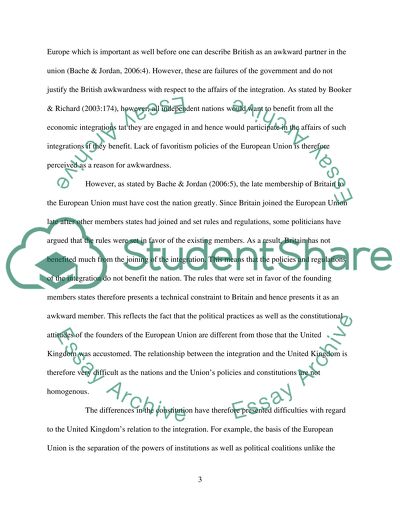Cite this document
(“British Politics and the European Union Essay Example | Topics and Well Written Essays - 1750 words”, n.d.)
Retrieved from https://studentshare.org/politics/1419261-british-politics
Retrieved from https://studentshare.org/politics/1419261-british-politics
(British Politics and the European Union Essay Example | Topics and Well Written Essays - 1750 Words)
https://studentshare.org/politics/1419261-british-politics.
https://studentshare.org/politics/1419261-british-politics.
“British Politics and the European Union Essay Example | Topics and Well Written Essays - 1750 Words”, n.d. https://studentshare.org/politics/1419261-british-politics.


